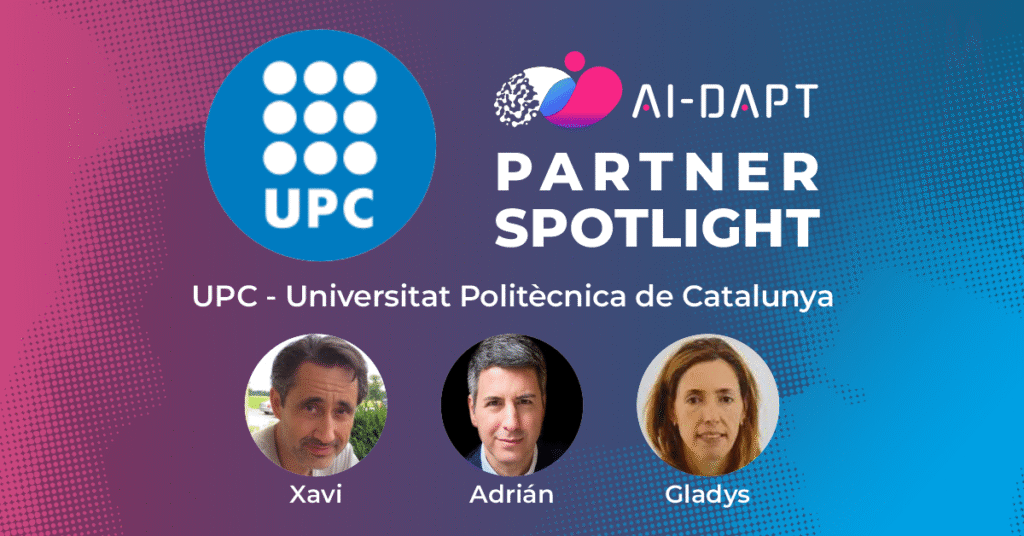Universitat Politècnica de Catalunya (UPC, www.upc.edu) is among the best Universities in Spain, with more than 4.100 teaching and research staff and 38.000 students. It aims at fostering the improvement of educational and research activities and greater transparency and accountability to society. It is currently offering 68 undergraduate degree programs, 62 master’s degree programs, 43 PhD programs, and 316 continuing-education programs. Ten of the master’s degree programs are under the Erasmus Mundus program, an international cooperation and mobility program in the field of higher education.
UPC is a leading research university in the areas of ICTs, Architecture and Civil Engineering, Mathematics and Statistics. As for ICTs it counts on a large campus located in Barcelona, focused on Information and Communication Technology with more than 5000 students working on ICT related topics and other campus distributed around the Barcelona area. The Department of Computer Architecture (DAC, www.ac.upc.edu) has more than 100 faculties and performs research on computer architecture, network architecture, super-computing, networking, and distributed systems. UPC has a large experience and expertise in the management of EU projects, with a specific office for that purpose. During the recent years, UPC is among the top three Spanish universities in terms of participation in EU funded research projects.

Research Areas
UPC participates in AI-DAPT through the CRAAX team (Advanced Network Architectures Lab, http://www.craax.upc.edu). CRAAX brings together researchers with almost 20 years of experience, mapped into not only scientific contributions but also a strong involvement in infrastructure contracts, national and international research projects (FP5-FP6-FP7, H2020, HE), and contracts with industries and governments.
Current CRAAX activities focus on key research areas that involve resource management and orchestration throughout the resource continuum, cybersecurity, and e-health. UPC’s AI-DAPT team has a strong focus on resource management optimization, mathematical modelling, AI/ML, as well as on HPC.
Our role within the AI-DAPT project
In AI-DAPT, UPC contributes to all WPs and leads Task 3.3, AI Pipelines Continuous Monitoring and Delivery, which focuses on the design, implementation, and integration of services for the execution and monitoring of AI pipelines, while addressing the relevant performance and efficiency requirements and ensuring traceability and the storage of performance metrics in scalable infrastructures.
The services developed in Task 3.3 will be integrated in the AI Pipeline Execution Engine, which is the central component in AI-DAPT to deliver and monitor AI pipelines. The AI Pipeline Execution Engine is triggered to run pipelines during the experimentation phase, and in the production phase, addressing the relevant performance, speed, efficiency, and reliability requirements for AI/Hybrid AI pipelines execution.
To address such requirements, continuous monitoring services integrated within the AI Pipeline Execution Engine are key to enabling AI strategies to facilitate the continuous optimisation of pipelines without disrupting their operation and minimizing re-configuration effort.
Key Personnel

Xavi Masip, received the M.Sc. and Ph.D. degrees in Telecommunications Engineering from Universitat Politècnica de Catalunya (UPC). He is currently a Professor with the Computer Science Department, UPC, where he is also the Director of the CRAAX Laboratory. In 2011 and 2012, he was a Visitor Professor with UPEC, Paris. His current research interests include cloud and fog/edge computing, network management, cybersecurity, 6G/B5G, and health, particularly the challenges identified within the cloud continuum. He has been involved in many different research initiatives at national and international levels, funded by the public and private sectors. He has been recognized with the 2016 IBM Faculty Award.

Adrián Asensio, is a researcher in the CRAAX Laboratory, and a Lecturer in the Department of Computer Architecture at Universitat Politècnica de Catalunya. He holds a M.Sc. degree in Telecommunications Engineering and a Ph.D. in Computer Architecture, both from Universitat Politècnica de Catalunya. His Ph.D. Thesis focused on the orchestration of datacenters and networks to facilitate the Telecom Cloud and his current research interests include mathematical modelling, algorithms design and AI, and their applications in resource management in the Cloud continuum, digital twins, continuous and automated regulatory compliance, and autonomous AI pipelines.

Gladys Utrera, is a full time Assistant Professor in the Department of Computer Architecture at the Universitat Politècnica de Catalunya (UPC). She earned her Ph.D. in Computer Architecture from UPC in 2007, with a research focus on enhancing the performance of job schedulers on multicore cluster systems. She is also an associate researcher in the Earth Sciences Department at the Barcelona Supercomputing Center (BSC). Her research interests span artificial intelligence, high-performance computing (HPC), and parallel programming models, and she has actively contributed to several national and international projects in these areas.
